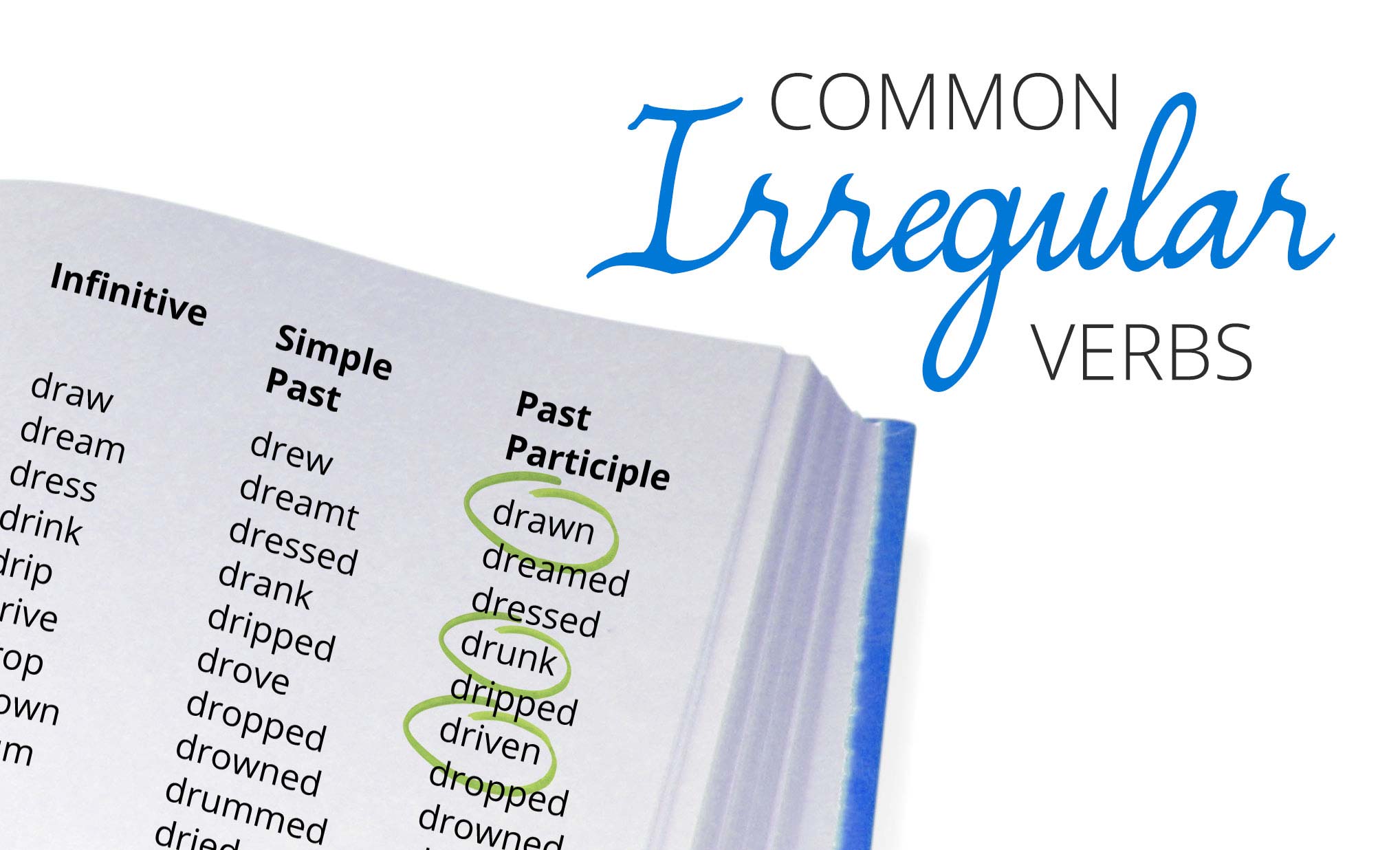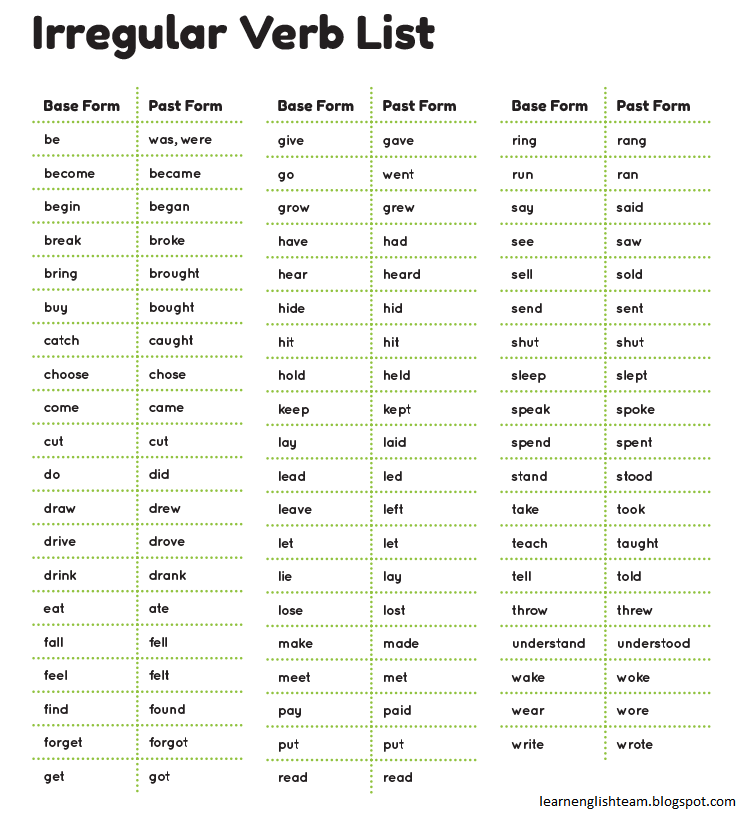고정 헤더 영역
상세 컨텐츠
본문


See also:Though the list of verbs irregular in the preterite or past participle is long, the list of irregular verbs is very short., Second Edition, entries for 'clothe' and 'clad'. The strong-type past form dug arose as a past participle in the 16th century, by analogy with stuck, and was used as a past tense from the 18th century.
. The following verbs use the standard past and participle forms (-ed) in American English: burn, dream, learn. The following verbs are now obsolete and use the standard past and participle forms (-ed): dwell, kneel, lean, mow, smell, spell, spill, spoil, trus. Irregular verbs live by their own set of rules. Most of the verbs in the English language are irregular verbs. These irregular verbs worksheets are for students at the beginner, intermediate and advanced level. Our Irregular Verbs Worksheets are free to download and easy to access in PDF format. Use these Irregular Verbs Worksheets at school.
Irregular Verbs List Pdf Download
See, Second Edition, entry for 'dig'. The use of need for needs, which has become the norm in contexts where the verb is used analogously to the modal verbs, became common in the 16th century. See, Second Edition, entry for 'need' (verb). Regularized (weak-type) forms of this verb are found from the 16th century onward. There is also an obsolete verb rive meaning arrive, for which weak-type forms are attested earlier. See, Second Edition, entries for 'rive'. Strong-type past forms of this verb were sometimes used in the 15th century; the past participle sawn is a survival of this.


See, Second Edition, entry for 'saw'. The forms stove and stoven are found from the 18th century onward. See, Second Edition, entry for 'stave'. The strong-type past forms leading to thrave (Northern) and throve are attested from the 13th and 14th centuries onward, and weak forms (leading to thrived) from the 14th.
Dutch Irregular Verbs List Pdf
See, Second Edition, entry for 'thrive'.External links. with their forms in different tenses. by Ralph Berry. A comprehensive list of English irregular verbs, including their base form, past simple, past participle, 3rd person singular, and the present participle / gerund.
Irregular Verbs Pdf
All the irregular verbs of the English language. Conjugation, pronunciation, translation and examples. Searchable reference of English irregular verbs and cognates, with audio.





